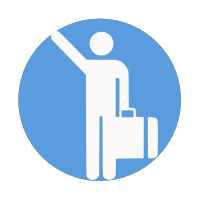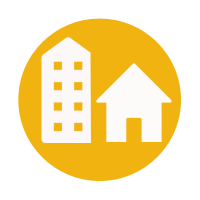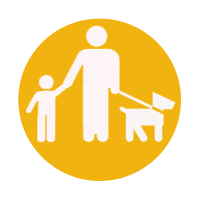When you are considering moving to the Cayman Islands there are always a number of questions that are asked regarding long-term accommodation. If you have decided that you are in the market to rent a property rather than to purchase then the information below should be a good starting point for you.
WHEN TO ARRIVE
This may seem like a strange thing to consider, but when you bare in mind that most leases and availability begins on the first of the month, then planning ahead makes sense. We usually recommend that new arrivals have temporary accommodation arranged for a week to 10 days when they first arrive. This is sufficient time to get a feel for the island, view properties with your agent and secure a place with all the necessary documentation needed to get in into your new home. Many companies actually pay for this temporary accommodation so ask ahead.
APARTMENT OR HOUSE?
START UP COSTS
There are a number of general rules of thumb to follow when renting a property.
- Rent is always paid in advance.

- All Landlords require a security deposit, which is at least equal to one months rent regardless of the rental value of the property. This money is held by the owner for the term of the lease and is refundable subject to any deductions for damage not withstanding normal wear and tear. Any interest accrued will be in favour of the owner.
- The utility, cable and phone company will all require deposits as well
FURNISHED/FULLY FURNISHED
LOCATION
Ocean/beach front properties are going to cost you the most amount of money. If you are willing to live close to the beach but not on it, you can get very nice properties at more reasonable rates. Canal front properties are also a good alternative.
Snug Harbour, South Sound, Parkway, and Governors  Harbour are all areas that have apartments and homes, in nice residential areas close to town, the beach and all amenities.
Harbour are all areas that have apartments and homes, in nice residential areas close to town, the beach and all amenities.
Prospect is an area 10 minutes from town that more and more people are moving to. Many new homes and apartments are springing up there, and a new shopping centre and supermarket is now complete.
The districts of West Bay, and Bodden Town are both within 20 minutes of George Town, and have cheaper, more traditional style homes. Wherever you live in Cayman, you will never be too far from the sea, shops, a bus route and will always feel safe.
UTILITY EXPENSES
Electricity is not cheap on the island, because of the usage of air conditioning. Most of the newer properties actually have split zones, which make them more economical. An apartment that has the air running permanently is going to run bills up to about CI$250-CI$400 per month. However, by only using it in an evening, or during the summer months the bills will average between CI$200 and CI$300.
Water usage is more reasonable. While the water is drinkable, most people prefer to drink bottled water. Average bills for families of 4, with a lot of laundry, can be around CI $200, but most couples will only pay around CI$100 a month. Along Seven Mile Beach properties also incur a sewage charge.
Cable TV an internet are additional costs, and do not always come as inclusive with your rent. Cable and internet packages can start from CI $50 to CI $200 per month.
HIDDEN EXTRAS 
It is worth checking prior to signing a lease agreement just who is responsible for those little extra things we often forget about. For example: sewage, garbage collection, regular yard and pool maintenance, the servicing of air conditioning systems and quarterly pest control. As a general rule, an owner will normally include these services as part of the lease agreement.
PETS & CHILDREN
AVAILABILITY 
The winter or "dry" season, which traditionally runs from December 15th through April 15th, has always been the busiest time of year, with tourists, new residents and employees all descending in a short period of time. Many new employees especially seasonal workers begin arriving in September. Accounting staff and bankers tend to come in October, and once into December, it can get very difficult to find good accommodation at a reasonable rent. Many seasonal staff and teachers begin to leave in May through June, with the next batch arriving in July and August.
TRANSPORTATION
Public transport has recently been regulated in the Cayman Islands. There is now a bus service that runs to each of the main areas of the island making getting around that much easier. They are abundant during rush hours. They are usually only a couple of dollars regardless of where you want to go. There are a few official bus stops around but it is easier just to flag one down when you see it approaching, (single deck mini buses) and they will normally drop you at a spot that is mutually convenient. There are a large number of taxis operating on the island, and like the buses, these are regulated, with a central committee fixing the more than reasonable fares. These can again be flagged down or the numbers for them can be found in the local phone books.
Cars are readily available on the island, new and second hand due to the transient population. Bringing your own vehicle from overseas can be an option but duty charges vary between 25-40% depending on the value of the vehicle, regardless of age and when it is brought down.
There are a large number of taxis operating on the island, and like the buses, these are regulated, with a central committee fixing the more than reasonable fares. These can again be flagged down or the numbers for them can be found in the local phone books.
Cars are readily available on the island, new and second hand due to the transient population. Bringing your own vehicle from overseas can be an option but duty charges vary between 25-40% depending on the value of the vehicle, regardless of age and when it is brought down.

